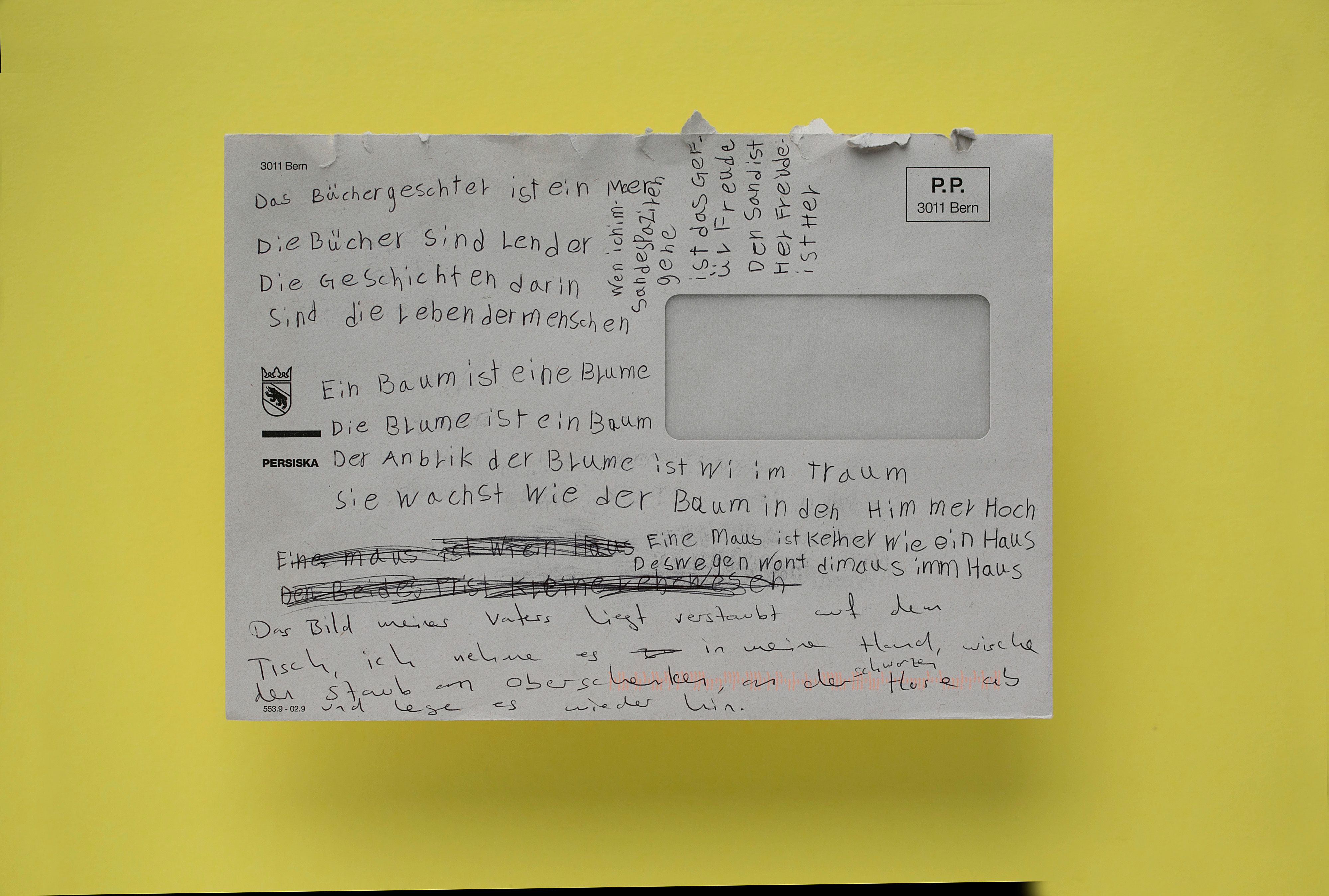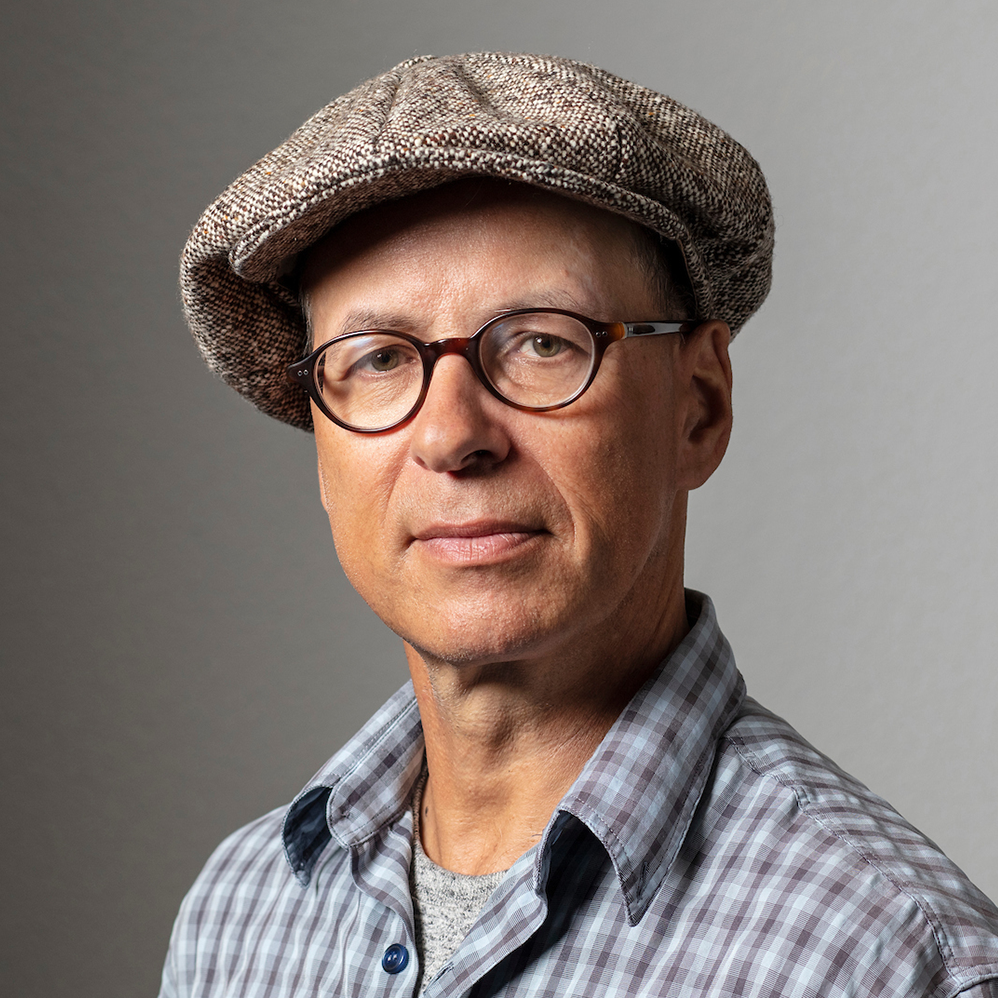‘If they like a poem, it gives them 1,000 perspectives’

The table in her sitting room is a jungle offering protection from the pouring rain. The bookcase on her wall is an ocean, and the books are countries. This is the kind of imaginary world Meral Kureyshi conjures up in her workshops for children.
For Kureyshi, poetry is not just contained in poems – rather it can be found everywhere and include everything. “Poetry includes history, religion, mathematics and philosophy,” the 30-year-old says. “In my workshop, we’ve gone from talking about tomatoes to Kafka’s Metamorphosis.”
But poetry is first and foremost a part of her life, which took her, with her family, from her native Kosovo to Switzerland when she was 10.
“When my grandfather talked about death to me for the first time – I was just four then – he gave me a spoonful of sugar,” she remembers from her early childhood in Prizren. This memory contains a lot of what Kureyshi says is poetry: remembering loved ones, their odour, the sound of their voice and familiar spaces.
Although she has loved poetry for as long as she can remember, she followed another path to keep the pot boiling, training as a fashion specialist. But that was before she discovered a building in Biel that would lead to her vocation – the Swiss Literature Institute, where she graduated from last year.
In the meantime her grandfather has died, but she still returns to the old family flat in Prizren for her holidays.
“I love the smell of the bakeries, of the exhaust fumes and of the rain steaming off the asphalt in Prizren,” she explains. “And I still sleep in the room where I was born.”
Poetry project
Today, she lives in Bern in a small light-filled flat not far from the Münster church in the old town. It’s there on a Saturday afternoon that six children between the ages of six and eight, most of them girls, are taking part in a poetry workshop.
Kureyshi began her project in the spring. The workshop begins with tea and homemade biscuits before the children take centre stage. One at a time, they read their own poems, written in small notebooks Kureyshi gave them.
Then the listeners say what they have and have not understood, what they liked and didn’t like. Kureyshi says that she is always surprised at how well they accept criticism.
She believes in a clearly structured workshop, going as far as to tell the children how to come up with ideas for new poems – sit down somewhere, close your eyes a little, and vaguely focus on something, in the room or beyond.
Once imagination kicks in, the sitting room becomes a jungle where the children can shelter from the rain under the dining table. Or the bookcase can become an ocean, where the books are countries containing the lives of their inhabitants.
“That’s how children discover that alongside daily life with all its rules, there is an imaginary world where anything is possible,” Kureyshi says.
With her workshop, she wants to provide a space for children whose interests do not stretch necessarily to just sport and school activities. It’s a space she regrets she did not have when she was younger.
“The idea is to help develop their imagination through interaction with other children,” she explains. “If they like a poem, it gives them a thousand perspectives they cannot even consider in just two hours.”
A family’s life
Kureyshi suffered when she arrived in Switzerland. “I had to escape my destiny here with all my strength, otherwise I would be a cleaning lady today,” she says. She learned German and began to write. Her text with the working title “Sugar” is still being written two decades later.
She tells the stories of a family’s life based on memories. But does it tell us something about her and her family?
“Yes, everything and nothing,” she replies. “The story has something to do with me, but I am not the character in it. The memories are not real, but drawn from my imagination because I now see the past differently than I did at that time.”
Conflict is at the heart of her writing. She puts passion and pain on paper. “I cannot just write about good times,” she says. “I need a knife. The grandfather, the dying father, the mother going blind, the rain.”
Overcoming resistance
She enjoys talking about her writing, as the warm tone in her voice indicates. But when she talks about the difficulties she faced in setting up her workshop project, it changes.
It took over a year to convince schools the project was worthwhile, and teachers were critical of it, she says, because they feared competition and distrusted her. It was only after a recommendation from the education department that schools welcomed her, and she can now give her course to students from the city of Bern.
It is still not enough to earn a living. She makes her money working in the movie theatre of the Bern fine arts museum and as a part-time employee at the Biel Pasquart Centre. But it isn’t work. Just poetry.
(Adapted from German by Scott Capper)

In compliance with the JTI standards
More: SWI swissinfo.ch certified by the Journalism Trust Initiative

You can find an overview of ongoing debates with our journalists here. Please join us!
If you want to start a conversation about a topic raised in this article or want to report factual errors, email us at english@swissinfo.ch.